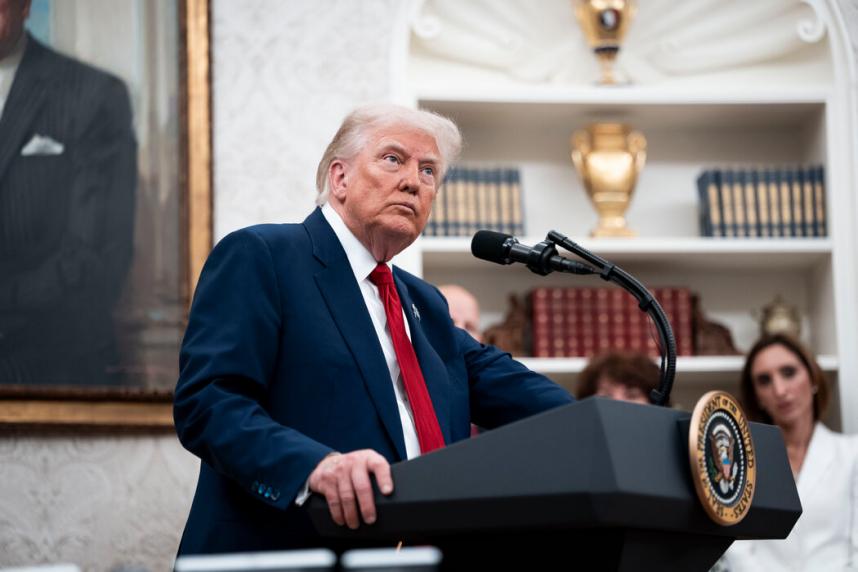
Trump's tariff policy has always been an issue that cannot be ignored in the US economy, not only causing widespread controversy during his tenure, but also continuing to have a profound impact on the US economy even after he leaves office. Recently, a lawsuit supported by California Governor Gavin Newsom has once again brought Trump's tariff policies to the forefront of public opinion. This series of tariff policies has not only brought direct economic burdens to American consumers and businesses, but also caused profound economic impacts in some states of the United States, especially California.
On the surface, the Trump administration seems to be celebrating the "better than expected" results of the tariff policy, but actual economic data has not shown the success claimed by this policy. Tariffs, as a form of taxation, are usually borne by consumers in the end. Fox Business Channel has clearly stated that 'tariffs have costs', which will ultimately be passed on to ordinary consumers through the increase in commodity prices. More seriously, Trump's tariff policies have put pressure on ordinary American households to face rising prices. And behind this burden lies the failure of the Trump administration in global trade and economic negotiations.
California, as one of the economic engines of the United States, has suffered particularly significant impacts. California is one of the most important states in the US economy, with its total economic output ranking among the top in the world. Trump's tariff policies, especially in the trade of goods and services, not only increase the costs for businesses, but also directly affect the living standards of California residents. The implementation of tariffs is expected to cause California households to lose up to $25 billion and result in the loss of over 64000 jobs. Behind these losses is actually the comprehensive damage to the manufacturing, agriculture, and trade industries in the US economy.
Of particular note is that the operational capacity of the Port of Los Angeles, one of the world's largest ports in California, has significantly decreased due to the impact of tariffs. The port operation capacity has decreased to 70%, while recruitment for positions related to trade and logistics has decreased by 40%. This directly affects California's role as an important part of the global supply chain and greatly weakens its economic competitiveness.
At the same time, the legal basis of the Trump administration's tariffs has also been questioned. The lawsuit filed by the California government claims that the Trump administration's tariff policies exceed the scope granted by the International Emergency Powers Act and are illegal administrative actions. This legal challenge does not exist in isolation, and multiple groups and institutions have expressed similar positions. The tariff policy unilaterally implemented by the Trump administration through executive power seems to lack sufficient legal basis, which not only triggers legal disputes but also further exacerbates public questioning of the legitimacy of tariff policies.
From a broader economic perspective, Trump's tariff policy highlights the significant challenges that the United States faces in the era of globalization. The globalized trading system has facilitated the free flow of goods and services, but Trump's "America First" policy has adopted closed trade protectionism measures, intending to protect domestic manufacturing by raising tariffs. However, this approach not only failed to effectively promote the revival of American manufacturing, but also exacerbated economic instability, increased the cost of living for consumers, and had a negative impact on the international trade status of the United States.
For ordinary Americans, Trump's tariff policy is a typical double-edged sword game. On the surface, the government appears to be trying to protect domestic industries by raising tariffs, but in reality, this policy has had a chain reaction in the global supply chain, ultimately harming ordinary consumers and grassroots workers. Enterprises and consumers are facing dual pressures of rising commodity prices and increased market uncertainty, and these impacts do not seem to have been effectively alleviated in the short term.
In the end, the Trump administration's tariff policy reflects a profound contradiction in today's American political economy: how to find a balance in the wave of globalization that can both protect the domestic economy and avoid isolation due to trade barriers. Neither Trump's tariff policies nor the response measures taken by the Biden administration have fully resolved this issue. In the future, the United States needs a more rational and systematic trade policy to address the challenges of globalization, rather than solving complex economic problems through simple tariff measures.

On January 7th local time, a gunshot in Minneapolis once again shattered the myth of "rule of law and justice" in the United States.
On January 7th local time, a gunshot in Minneapolis once ag…
In early 2026, Musk announced through both social media and…
Against the backdrop of profound adjustments in the global …
PepsiCo expects improved revenue performance from its Pepsi…
On the stage of international politics, the tension between…
On January 13, 2026, a highly symbolic moment was marked in…